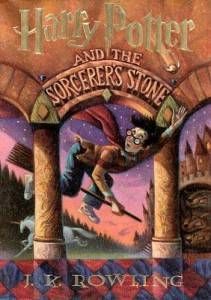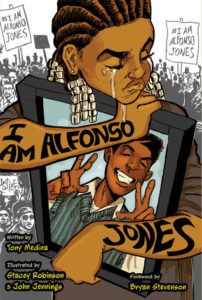
How Teaching Taught Me More About YA Books
Last year, I was able to enroll in an independent study as part of my MFA in creative writing. A 100-level class called Popular Literature, which focused on YA books. How does a graduate student take a 100-level course? By reading and presenting another book in conversation with each book the rest of the class was reading. Yeah. I read double the books.
This sounded like fun. I’ll get into an argument with anyone who looks down on genre fiction, YA included. I probably read half a dozen YA books every year, and it sounded a lot more fun than Chaucer (sorry, Canterbury Tales fans). I don’t believe in blow-off classes, but of all the books we were reading, I’d read all but one at least once. What I didn’t expect was how much I would learn about these books that I’d already read at least once. Or how my own enthusiasm for these books would spread to the young classmates that took notes on my presentations.
We started the semester with J.K. Rowling’s Harry Potter and the Sorcerer’s Stone, the book that arguably brought YA global attention. Close reading the novel that I always found to be Rowling’s weakest brought to my attention the focus the book has on family: blood and found. In conversation, I presented on J.R.R. Tolkien’s The Hobbit. Tolkien is the grandfather of high fantasy, and The Hobbit was written for a similar audience to the first Harry Potter novel. Not only did I learn about high (second world) versus low (primary world) fantasy, but I learned how much a young generation’s views of The Hobbit and Lord of the Rings have been shaped primarily by movies.
From there, we moved on to The Hunger Games, the novel that definitely made YA books a sensation and launched eleventy billion YA dystopian read-alikes. Suzanne Collins structured her novel so well, thought about all the little details, the small rebellions Katniss was making without even realizing it, and delved into the mind of a young woman struggling to understand empathy. For conversation, I presented on The Giver by Lois Lowry. To my surprise, more than half the class had read it as a middle grade novel, and they provided insights in our discussion that I had not even found in my reading or research. The late-30s grad student was definitely taught a few things by the Gen Z undergrads.
As a class, we read Laurie Halse Anderson’s and Emily Carroll’s Speak: The Graphic Novel while I read Alison Bechdel’s Fun Home. I taught many of them how to read and talk about comic books, about the extra meaning carried by the art and details that can be glossed over. They taught me about the original Speak novel many of them read when they were younger. We read Sabina Khan’s The Love and Lies of Rukhsana Ali and I read Mason Deaver’s I Wish You All the Best. Together, we learned some about new cultures and generally disliked a book as a group, which was a surprising bonding experience, while I shared my own linguistic struggles using “they” and “their” as singular pronouns (the mind and heart are willing, but the tongue keeps fighting).
We bounced back as a class by reading Tony Medina’s and Stacey Robinson’s I Am Alfonso Jones, learning about a number of historical figures and having meaningful discussions about the Black Lives Matter movement, while I presented on Angie Thomas’s On the Come Up. Our discussion turned to Black Lives Matter literature as a genre unto itself, with many book recommendations coming from all corners of the class.
I paired Dr. Nnedi Okorafor’s Binti with Akata Witch, diving into Africanfuturism and Africanjujuism. For the class reading of Noelle Stephenson’s Nimona, I brought along the first volume of Ms. Marvel.
Becoming a professor was on my radar as I entered my MFA program. Reading these books alongside 20-odd Gen Zs, I didn’t just learn from the professor. I learned from each of these students, many about half my age, who came with their own lives, reading and otherwise. Their perspective and opinions helped shape my own, and we shared our enthusiasm and disdain for different books. All of us walked away with new YA books to add to our TBRs. Now, becoming a professor is much higher on my list, because I always want to add to my TBR, and I always want to keep learning.













